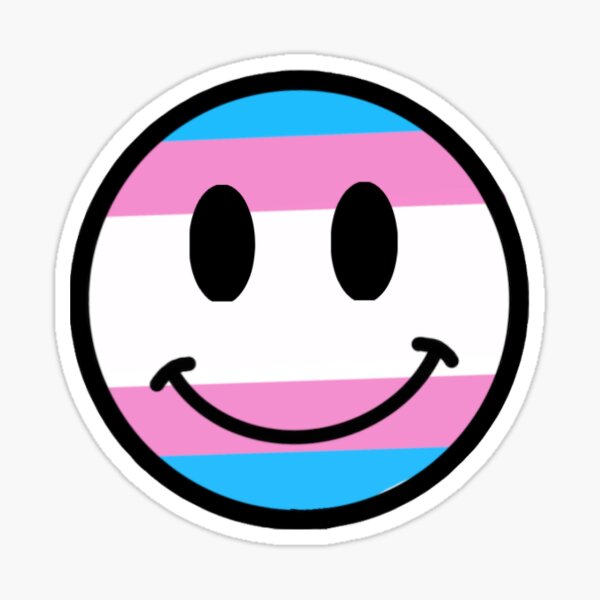I see both of them said fairly often and am confused.
sex and gender are not the same thing but are broadly understood by society to mean the same thing, hence the confusion
gender is the social construct, sex is biological, but both exist as a spectrum. our strictly delineated categories exist more for societal convenience and control.
gender as a spectrum is well understood in these spaces but if the sex part is tripping you up just remember that intersex people are roughly as common as natural redheads, the difference being that society doesn't look at someone who is a redhead and say "yeah that's a brunette".
Several levels of answer here.
For chuds
Sex and gender are both social constructs because fuck you
For liberals and well meaning people
Saying they’re “the same” is erasure of trans people.
Saying that gender is a spectrum but sex isn’t is erasure of intersex people.
I think you can say they’re both spectrums without saying they’re “the same” and you can also say they’re different without implying that one of them is binary.
Potentially spicy take for people who are exploring their own gender or sex variations
Gender and sex both fit on spectrums in the way that political ideology fits on a compass. It makes people feel like they understand something because they understand the abstraction for the thing. I start teaching my kids using the Gender Unicorn model around the time they start playing with gender at age 2/3. The fact that my toddlers have been capable of understanding a more nuanced view of gender/biological sex/attraction than most adults is really sad.
And if you’re one of those adults, I don’t think you need to feel guilty. Groups of queer people have been trying to build those social constructs for nuanced understanding of these things for hundreds of years now. The Nazis burned some of the world’s most sophisticated research on the subject at the time. The AIDS crisis decimated our population and disrupted the social networks that this information would normally travel through. The most recent attempt at rebuilding these social constructs has been the Tumblr gender renaissance which was targeted by the predecessors to the same reactionary forces which are now attacking drag shows.
Long story short, our society assigns gender, sometimes surgically, to infants based on a vibe check of their genitalia, which is often not representative of their biological sex or their gender identity. And that assigned gender has historically gatekept access to healthcare and social support for queer people.
I stick to the spectrum discussions amongst most people, but among queer people, I think we tend to already live a radical acceptance that’s fertile ground for growing a robust “beacons, not fences” attitude towards this whole system. And to me, spectrums more often feel like fences than beacons.
I think perhaps the most Marxist way to put it is that gender and sex form a dialectical relationship that cannot be fully understood as two enjoined spectra but only through the lives of real people and the way that they interface and feel best interfacing with society. For my wife at least, her understanding of gender and sex was radicalized largely by trying to understand myriad indigenous understandings of gender, and perhaps that's a good inroads for a certain kind of "well-meaning" liberal.
Sex is a spectrum, too (or maybe more of a mosaic), gender isn't the same and it is necessary to break down gender further.
If you want to explain 100% of people's gender experiences, you need to do what Comrade Leslie Feinberg outlined in Trans Liberation: Beyond Pink or Blue and differentiate between gender role /gender performance = gender as a social construct and as a way to perform gender in society on one hand; an external, social dimension of gender so to say.
And on the other hand, you have gender identity which means gender as part of your self, as a psychological constant that shapes how you view your gendered relations with the rest of society and your biological sexual characteristics - this is the internal dimension of gender.
People normally do not notice this split because for most people, sex, gender role and gender identity more or less align from birth. But when you're trans, and when you realize that you're trans, it either becomes very obvious that the trans experience can only be explained this way, in a 3-dimensional model, or you end up lost and confused thinking that your transness is largely tied to your gender performance being different from your AGAB and you become ContraPoints.
A lot of the discourse around transness that isn't entirely bad faith genocide justification bs but honest confusion boils down to this. To people going with the Butlerian two-dimensional sex/gender model that only explains cis experiences and very easily leads to transphobic kneejerk reactions when you're a gender non-conforming cis woman who thinks too hard about what being trans means.
I've been quoting you a lot when talking about this to well meaning liberals. I've been mentioning frequently how gender can't be understood as simply performance, but also identity and presentation. It does seem to make the gears finally turn in some heads
She made a video that, if I'm being charitable, was trying to make the point that gender is self identity and performance within society that are different but linked things but it came off as her saying that gender was just performance and Contra got drug for it.
They aren't the same (i.e., sex and gender are not synonymous). But sex also can be conceived of as existing on a spectrum and not as a binary. Sex, like gender, is socially constructed (all categories are). Sex may have to do with "biological facts" or whatever, but it is still an interpretation of these. No matter what mix of primary and secondary sex characteristics one takes to be necessary and sufficient for a person being "biologically" male or female, there are lots of people who don't neatly fit into those categories. The artificiality of this binary is evident in the "medical" interventions (non-consensual genital surgery, etc.) frequently performed on infants to force their bodies to fit into it.
They're def both spectrums. Regarding the sex spectrum a lot of people will point out intersex people, but also remember that things like hormone levels vary a lot between seemingly typical members of each sex, so it isn't like every non intersex person on the planet sits comfortably on one of two spots, it's more of a bimodal distribution.
Chuds trashed it when it came out, but the Bill Nye Saves the World episode on sex and gender was spot on with this concept, also adding "expression" and "attraction" as spectrums alongside sex and gender. IMO I think even these abstractions of the concepts at play are probably simplifying the dizzyingly complex web of interactions going on in the brain, but science education is always playing a balancing act between explaining everything we know and keeping things manageable for non-experts.
The first one is fully correct. The second one is wrong but I think it's just bad phrasing and not deliberate. Breaking it into the two clauses:
[sex and gender] are the same
absolutely not
and sex is on a spectrum too
Yeah, but the wording here implies that what was meant by the previous clause is "[sex and gender] both exist on spectrums".
Gender is the social presentation aspect and has infinite variations, and "spectrum" is a convenient way to refer to that. Sex is those parts of your biological makeup that determine your secondary sex characteristics, which is largely bimodal but also exists in degrees, like chromosomal differences, hormone production and sensitivity differences, and anatomical formation differences.
sex is the phenotypic expression of your body. society interprets this expression - which includes a multitude of often contradictory features - as a binary but the biological reality is that it exists on a spectrum with two modes (for humans, anyway). gender identity is complicated but the best explanation is that it's the sex of our brains - this frequently aligns with the body's sex but not always. when it doesn't, the brain spends a lot of time setting off alarms until you go totally numb to them and stop even noticing that it's happening. we call this phenomenon dysphoria. not everyone experiences a concrete sense of dysphoria and not everyone who experiences dysphoria is trans. cis people experience dysphoria too -- look at the body builders or instagram models pushing their bodies to almost ludicrous extremes, chasing an image of who they think they ought to be.
while we might one day be able to look at a brain scan and determine who's likely to be trans - people for whom their brain's sex and their body's sex diverges - it's important that we resist the urge to make such classification final. the only person who can determine what their sex & gender ought to be is the person themselves.
why am I framing it in this way? because the sex/gender dichotomy is originally a TERF thing. they were trying to explain why trans people were biologically their birth sex. they're obviously wrong and in contradiction with all of biology (there are very few categorical distinctions in biology; virtually everything is a spectrum) but for whatever reason, it's stuck -- I think because we're not used to thinking of the brain as an organ that can display sexual dimorphism. but the reality is that it is and it can have anything ranging from a subtle to a significant effect on how someone sees themselves.
gender expression is just how you present yourself to society - man, woman, NB, agendered, whatever. it's your clothes, your mannerisms, and everything else.
in colloquial speech, when people talk about sex & gender, they're almost always referring to the notions that society has constructed about these underlying factors. "biological sex" is a misnomer. we mean "how society buckets any particular combination of sexually dimorphic features" and society only has two buckets at present - man and woman. this is what people mean when they say sex is socially constructed.
lastly, because sex is entirely about phenotypic expression (consider: someone can have XY chromosomes yet will never be able to androgenize hormonally if they have a gene that makes them totally and completely insensitive to androgens), it's possible to change one's sex. and because sex mostly refers to society's concepts surrounding sex, this doesn't really even require medical procedures or hormones -- for some people they don't really need to do much but change their appearance, and society will read them as they wish to be read. but even the biology can be changed. hormones gave me a menstrual cycle (minus ovulation), I have a vagina, I have breasts, and my hips are as wide as my shoulders. whose definition of female do I, someone who was assigned male at birth, not meet?
Sex isn't as simple as male/female xy/xx either. You've got genotype vs phenotype vs dominant hormones where something like chronic androgen insensitivity syndrome where you have y chromosome but are AFAB. Or intersex people who don't conform to the man=penis=xy that is typical. Or just trans people on hormones for long enough that your hormones levels are at that of a cis person. It's not binary.
Pants but also chromosomes, bloodstream, body composition, weight distribution, body hair. All of these are “biological.”











